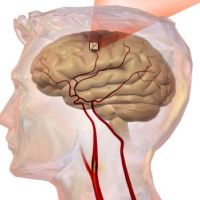According to new research, a stroke can age a person’s brain function by almost eight years. The findings of the study have been published in the journal Stroke.
Researchers from the University of Michigan U-M Medical School and School of Public Health and the VA Center for Clinical Management Research evaluated data from more than 4900 black and white seniors over the age of 65. They used data on 7.5 percent of black participants and 6.7 percent white participants who had no recent history of stroke, dementia or other cognitive issues, but who suffered a stroke within 12 years of the first test in 1998.
The researchers measured the changes in test scores from 1998 to 2012 and found that both black and white patients performed worse on the test after their stroke. The score on a 27-item test of memory and thinking speed for patients who had a stroke showed a significant drop – as if the patients had aged 7.9 years overnight.
The findings of the study highlight the need for stroke prevention. "As we search for the key drivers of the known disparities in cognitive decline between blacks and whites, we focus here on the role of 'health shocks' such as stroke," says lead author and U-M Medical School assistant professor Deborah Levine, M.D., MPH. "Although we found that stroke does not explain the difference, these results show the amount of cognitive aging that stroke brings on, and therefore the importance of stroke prevention to reduce the risk of cognitive decline."
Previous research has focused on evaluating racial differences in status, education and risk factors but in this this new study, the size of the effect was the same among black and whites. However, Dr. Levine notes that a person’s vascular risk factors, the quality of their education and genetic and biological factors may play a role in racial differences.
Overall, the conclusion of the study is that strokes can have serious consequences for brain function and can rob the brain of eight years of cognitive health. People of all racial and ethnic backgrounds will benefit from measures that are taken to reduce the risk of stroke. These measures could include controlling blood pressure, maintaining cholesterol levels, avoiding smoking, controlling blood sugar and staying active even in old age.
Source: University of Michigan Health System
Image Credit: Wikimedia Commons



























